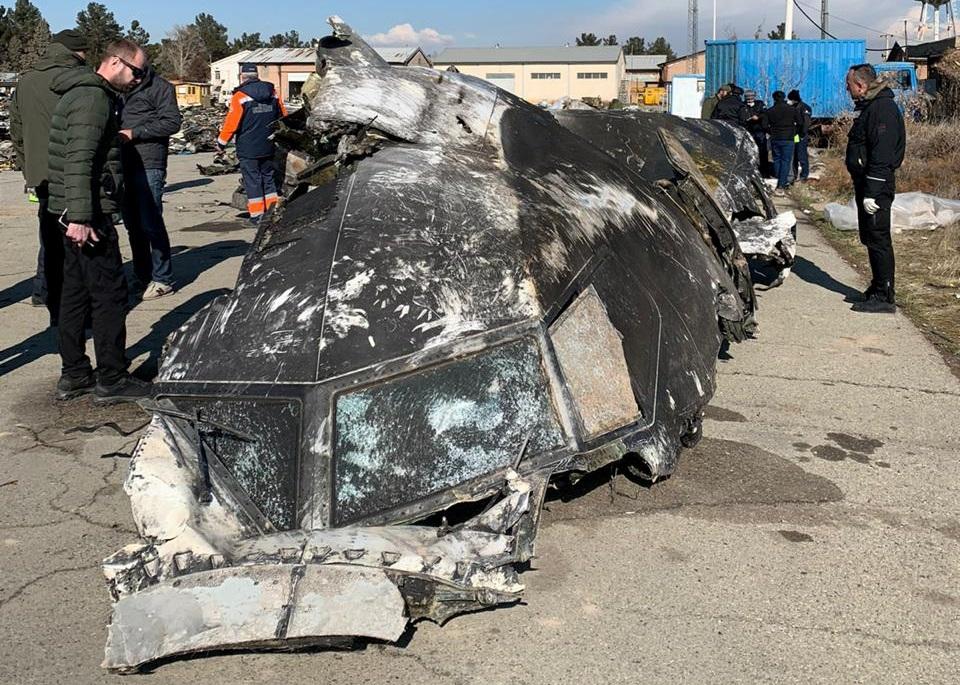
Moscow was interested in the crash of a Ukrainian passenger plane in the Middle East and had technology to remotely interfere with the operation of the Russian-made Tor missile launcher, Ukrainian defense experts say.
"Russia was interested in the crash of the Ukrainian aircraft in the Middle East, given the subsequent ensuing between the U.S. and Iran and its influence on the hydrocarbon market, because oil prices are critical for Russia today. After three series of unsuccessful attacks by Iran on U.S. objects, Russia needed a new escalation to hit NATO as much as possible, including Canada, so a passenger plane downing was a great instrument. It was also convenient from the perspective of a hybrid component, because it was Iran who formally brought down the airliner. Iran's relations with the West are deteriorating – oil prices are rising, the logistics of oil supplies are being hindered to the U.S., the EU, and Saudi Arabia in the first place, while demand for Russian oil is increasing accordingly. Given the decline in Western investment in the Russian economy, it is also an instrument of coercion to invest – 'if you can't take it through pipelines, build tankers for us'," Ukrainian military expert Yuriy Kolesnikov told Guildhall.
"Russian intelligence has deeply penetrated the IRGC with human assets. While we have no knowledge as for the exact modification of the TOR launcher involved, Russia was technologically able to remotely interfere with the system's operation. It is possible that the crew at the scene did not interfere with the launcher's work at all and whatever their actions, the system made that strike. Remote target locking and a remote command to launch missiles are also possible from the territory of the country of origin, that is, from Russia. I remind you that they once 'landed' a Polish plane beyond the runway, and that was back in 2010," the expert notes.
Read alsoIran says some people arrested for their role in Ukrainian plane crash – Reuters
The possibility of remote interference in the work of TOR AA system in Iran is also confirmed by military observer with Defense Express, ex-spokesman for Ukroboronprom Oleh Katkov, who noted that since the day the plane was downed, Russia had been carrying out a systemic information campaign to rule out own involvement in the crash.
"There are different modifications to the Tor AA launcher, but starting from the M1 model, they can operate as part of a united air defense system. That is, there is a special system allowing for remote control of air defense systems, including the Tor M-1. And if it was this modification that was in service with the IRGC, it was actually possible. The Tor launcher was developed in the late 1980's precisely as a system for intercepting cruise and anti-ship missiles. The system's coverage and response time are minimal because the missile reaches the target within seconds, so to minimize time costs, everything is done automatically. One of Tor's developers in an interview said about the system that 'we bring down everything that is moving.' Unfortunately, they did bring down everything they could reach. The information that Russian experts were considering the possibility of servicing Tor launchers in Iran dates back to 2015," said Oleh Katkov.
Read alsoThink tank points to Tor launcher's failure to identify PS752 as civilian aircraft
"It is worth noting that as soon as Russia became aware of the crash, it launched a systemic information campaign to rule out own involvement. Reports were consistently spun claiming that the plane could not be brought down but rather crashed due to technical reasons. But when world powers who have intelligence at their disposal, in particular the U.S., announced they had evidence about the crash, Iran was forced to admit its involvement and seemed to do so without Russia's approval. The article on Wikipedia about the Tor AA system was tailored to remove precisely the information about the possibility of automatic missile launches, at the same time adding a notion about the 'need for an operator's participation', which wasn't there before. The very launcher had earlier been advertised by the Russians as the one able to automatically hit targets in a special automatic mode," the observer noted.
According to The Telegraph, tensions between the Iranian government and the Islamic Revolutionary Guard Corps (IRGC) spilled into a public plane when the president's office accused the elite forces of misleading them about a Ukrainian plane crash.
Against the background of protests ongoing in Iran for the third day already in the aftermath of the Ukrainian Boeing downing, allies of Hassan Rouhani, the democratically elected president, are channeling public anger onto their hawkish rivals from the IRGC.

